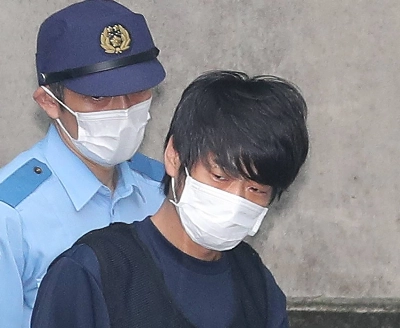Japanese government officials are vexed over reports that former Peruvian President Alberto Fujimori, who disappeared Wednesday afternoon from a Tokyo hotel, hopes to stay in Japan for an extended period of time.
In the morning, Chief Cabinet Secretary Yasuo Fukuda said Fujimori has yet to apply for an extended stay, but the government is prepared to consider a request if it is submitted.
Asked whether the government knows if Fujimori has Japanese and Peruvian nationality, Fukuda said, "We are not fully aware of the facts, so I would like to decline comment at this point."

















With your current subscription plan you can comment on stories. However, before writing your first comment, please create a display name in the Profile section of your subscriber account page.